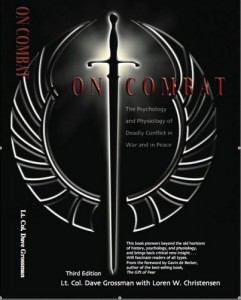Podcast: Play in new window | Download
You can make a difference! You do not have to be a doctor, psychologist, clergy or other professional to make a difference in the life of someone with PTSD.
We are not helpless when it come to helping ourselves of helping others dealing with Post-Traumatic Stress Disorder. We do not have to face our own PTSD alone and we do not have to face the PTSD of our loved one alone.
Below is a brief list of things that I have found helpful in dealing with PTSD in my own life and helping others in my role as a Chaplain, Pastor and a friend.
1. Educate yourself
Useful Books: (share what books have help you in our comments section)
- On Combat: The Psychology and Physiology of Deadly Conflict in War and in Peace, Lt. Col. Dave Grossman, Loren W. Christenson
- Achilles in Vietnam: Combat Trauma and the Undoing of Character, Jonathan Shay
- War and the Soul, Edward Tick
- After the Trauma the Battle Begins, Nigel W.D. Mumford
A few web resources:
- http://www.nimh.nih.gov/health/topics/post-traumatic-stress-disorder-ptsd/index.shtml
- http://www.ptsd.va.gov/
- http://en.wikipedia.org/wiki/Posttraumatic_stress_disorder
- A good blog hosted by a woman that is recovering from PTSD: http://healmyptsd.com/
- A nice collection of entries focusing on the spiritual aspect of PTSD: http://www.ptsdspirituality.com/
- Our website: http://www.healingthewoundsofwar.com/
- and our Facebook page: https://www.facebook.com/HopeAndRestorationTeam
2. Accept this reality
3. Have reasonable expectation of both them and yourself.
4. Establish boundaries (physical abuse is always over the line)
5. Be willing and prepared to listen. (Know your limits: boundaries and expectations)
6. Be willing and prepared to join them in their journey.
Some Other Lists:
- http://www.ptsd.va.gov/public/family/helping-family-member.asp
- http://www.heal-post-traumatic-stress.com/help-PTSD-sufferer.html
- http://casapalmera.com/ways-to-support-someone-with-post-traumatic-stress-disorder/
Question of the Week: What books/resources have you found helpful?



